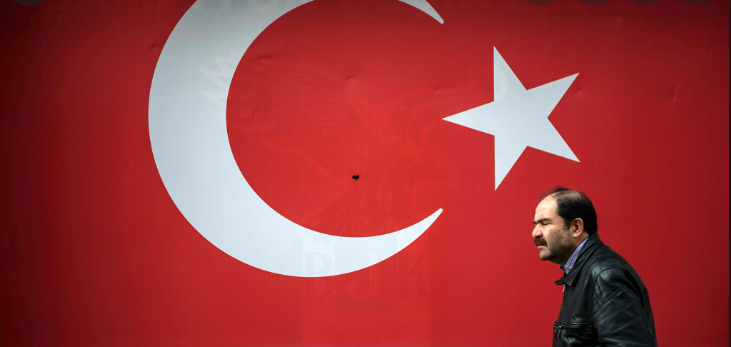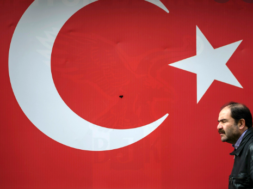
Roving Periscope: Ukraine war fuels Turkey’s inflation to 20 yr high at 70% in April
Virendra Pandit
New Delhi: That the Russian invasion of Ukraine would destabilize economies was known. But so soon? Some seventy days after the war began on February 24, its impact on global economies started surfacing in import-dependent countries.
The cascading effect of the inconclusive and brutal war is biting several countries, including Turkey, whose annual inflation rate rose more than expected, to nearly 70 percent in April. It was a fresh 20-year high, official data showed Thursday.
Inflation in India also may continue to trend above 6 percent for the rest of this year despite this week’s surprise repo rate hike by the RBI, the reports said.
The Turkish economy, like Pakistani and Sri Lankan, has been ailing for a long time and the fresh war has only added to its woes. Ankara has resorted to the devaluation of its national currency to limit the damage. On Friday, a US dollar was equal to 14.9 Turkish liras.
The Russia-Ukraine conflict and rising energy and commodity prices have fuelled inflation in Turkey, the media reported.
Its consumer price index (CPI) surged an annual 69.97 percent in April, the Turkish Statistical Institute (TurkStat) said. It is the biggest year-over-year increase since 2002 and up from 61.1 percent in March. They forecast the CPI to be around 68 percent.
Month-on-month, consumer prices rose 7.25 percent, the institute said, compared to an average market forecast of 6 percent.
Even in the US, inflation hit a fresh 40-year high of 8.5 percent in April, and in the 19 countries using the euro currency, it hit a record high of 7.5 percent.
In Britain, the inflation rate zoomed to a 30-year high of 7 percent in March, more than triple the central bank’s target of 2 percent. On Thursday, the Bank of England (BoE) revised upwards its forecasts for price growth to show it peaking above 10 percent in the last three months (January to March 2022).
Russia’s invasion of Ukraine, which triggered a surge in gas, oil, and grain prices, has compounded the situation in import-reliant Turkey.
The annual surge in consumer prices in April was driven by a 105.9 percent leap in the transportation sector, including energy prices, and an 89.1 percent jump in food and non-alcoholic drinks prices, the data showed.
A core index stripping out the impact from volatile items, including food and energy, reached 52.4 percent, up from 48.4 percent in March.
Month-on-month, food and non-alcoholic drink prices rose the most at 13.38 percent and house prices rose 7.43 percent.
Inflation has surged since last autumn as the Turkish currency lira weakened after the central bank in September 2021 embarked on a 500-basis point-easing cycle.
The government claimed inflation will fall under its new economic program, which prioritizes low-interest rates to boost production and exports with the goal of achieving a current account surplus (CAS).
Inflation has continued to rise despite tax cuts on basic goods and government subsidies for some electricity bills to ease the burden on household budgets.
Turkish President Recep Tayyip Erdoğan said last week that inflation would recede as of May and reach a “more favorable direction” by the end of the year.
Treasury and Finance Minister Nureddin Nebati on Monday brushed aside concerns, saying that the current inflationary trend was ‘fleeting’ and would “not spread over the long term and be permanent.”
“We will increase the welfare and purchasing power of our citizens over the past level,” he said.
Last week, the Central Bank of the Republic of Turkey (CBRT) revised its inflation forecasts for this year and the next mainly because of the rise in commodity prices and supply issues.
It forecast annual inflation will peak at around 70 percent by June before declining to near 43 percent by year-end and single digits by end-2024.
The central bank held its key policy rate steady at 14 percent in four meetings this year and said measures and policy steps will prioritize so-called liberalization in the market.
The domestic producer price index climbed 7.67 percent month-on-month in April for an annual rise of 121.82 percent.













